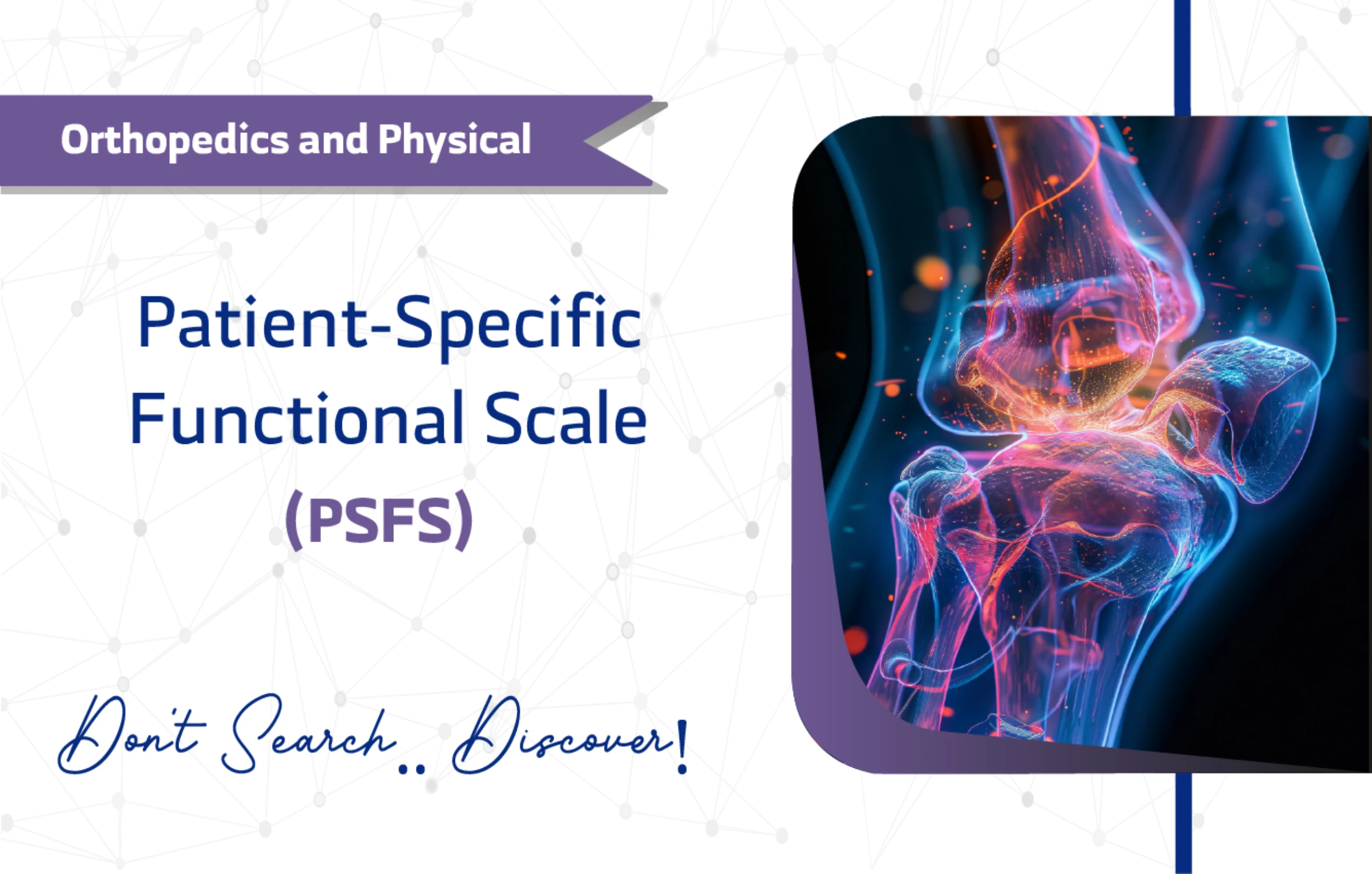Introduction
The Short-Form McGill Pain Questionnaire (SF-MPQ), developed by Ronald Melzack in 1971, is a widely used tool for assessing pain in clinical and research contexts. With over 12,000 citations on Google Scholar. Designed to measure both the sensory and emotional dimensions of pain, the SF-MPQ offers a rapid yet comprehensive evaluation, making it invaluable for researchers and clinicians.
This article delves into the SF-MPQ’s structure, scoring, applications, and limitations, providing a robust resource for experts aiming to enhance pain assessment and treatment outcomes.
Key Features of the Short-Form McGill Pain Questionnaire (SF-MPQ)
Purpose and Use
The SF-MPQ is engineered to evaluate pain intensity and quality, capturing both sensory (e.g., “throbbing”) and emotional (e.g., “exhausting”) dimensions. Consequently, it provides quantitative measures through its Pain Rating Index (PRI), Present Pain Intensity (PPI), and Visual Analog Scale (VAS). Clinicians use it to assess acute or chronic pain, while researchers leverage it to track treatment outcomes or temporal changes in pain studies. For instance, its concise format makes it ideal for tailoring pain management plans.
Target Population
The SF-MPQ is validated for adolescents (13–17 years) and adults, including:
- Young Adults (18–24 years)
- Middle-Aged Adults (25–44 years)
- Older Adults (45–64 years)
- Seniors (65+ years)
- Students (high school and college/university)
- Parents
- Patients with acute or chronic pain
However, it is not validated for children under 13, limiting its pediatric use.
Structure
The SF-MPQ comprises 15 items across two domains:
- Sensory Dimensions (11 items): Descriptors like “stinging,” “throbbing,” or “burning” assess the physical qualities of pain.
- Emotional Dimensions (4 items): Terms like “annoying” or “exhausting” capture the emotional impact of pain.
Additionally, it includes two independent scales: a 5-point PPI (very mild to very severe) and a 10-cm VAS (0–100 mm). These components ensure a holistic evaluation of pain experience.
Scoring Method
The SF-MPQ uses a complex yet precise scoring system:
- Likert Scale: Each of the 15 descriptors is rated from 0 (none) to 3 (severe), yielding:
- Sensory PRI: Sum of 11 sensory descriptors (range: 0–33).
- Affective PRI: Sum of 4 emotional descriptors (range: 0–12).
- Total PRI: Sum of Sensory and Affective PRI (range: 0–45).
- PPI: A 5-point ordinal scale (1 = very mild, 5 = very severe).
- VAS: A 10-cm line (0 = no pain, 100 = maximum pain), measured in millimeters.
Higher scores indicate greater pain severity. For example, a high Sensory PRI might prompt targeted physical therapy, while a high Affective PRI could signal psychological support needs.
Administration Format
The SF-MPQ supports flexible administration:
- Paper-based forms
- Digital (online) platforms
- Mobile apps
- In-person
- phone/video interviews
Taking 5-10 minutes to complete, it’s practical for busy clinical settings. No specialized training is required, as it’s self-administered, enhancing its accessibility.
Applications of Short-Form McGill Pain Questionnaire (SF-MPQ)
The SF-MPQ excels in multiple roles:
- Screening: Identifies pain severity and type in conditions like arthritis or neuropathy.
- Monitoring: Tracks changes in pain post-treatment, such as after surgery or medication.
- Treatment Planning: Guides tailored interventions based on sensory or emotional pain profiles.
- Research: Enables outcome comparisons in clinical trials, advancing pain management strategies.
For example, a clinician might use a high VAS score to adjust medication, while researchers analyze PRI trends across patient cohorts. Thus, the SF-MPQ bridges clinical practice and scientific inquiry effectively.
Languages and availability
To support global use, the SF-MPQ is available in approximately 50 languages, including:
- Arabic
- English
- Mandarin Chinese
- Spanish
- German
This multilingual accessibility ensures its utility in diverse clinical and research settings worldwide.
The SF-MPQ is free for non-commercial use but requires permission for commercial or funded academic projects. It operates under a public domain license, though reproduction or translation needs approval from McGill University.
Reliability and Validity
The SF-MPQ is highly reliable and valid, with Cronbach’s alpha ranging from 0.70–0.90, indicating strong internal consistency. Validation studies, confirm its sensitivity to changes in pain, making it a trusted tool for assessing treatment outcomes across diverse populations, from oncology to rheumatology.
- Original Validation Study: Study Link
- Another Validation Studies:
- Factorial validity of the short-form McGill pain questionnaire (SF-MPQ): Study Link
- Test-Retest Reliability of the Short-Form McGill Pain Questionnaire: Study Link
Limitations and Considerations
Despite its strengths, the SF-MPQ has a few limitations:
- Self-Report: Responses may be influenced by social desirability bias or personal interpretation.
- Lack of Sensitivity to Change: May not fully capture subtle pain fluctuations over time.
- Narrow Focus: Covers only sensory and emotional pain dimensions, excluding functional interference or quality-of-life aspects.
Other Versions And Related Questionnaires
Complementary tools include:
- Brief Pain Inventory (BPI)
- West Haven-Yale Multidimensional Pain Inventory (WHYMPI)
- Chronic Pain Grade Scale (CPGS)
- Pain Disability Index (PDI)
- Oswestry Disability Index (ODI)
- DN4 Questionnaire
- Leeds Assessment of Neuropathic Symptoms and Signs (LANSS)
- Pain Catastrophizing Scale (PCS)
- 36-Item Short Form Survey (SF-36)
- Numeric Rating Scale (NRS)
An updated version, SF-MPQ-2 (2009, revised version) expands pain dimensions and improves validity, addressing some limitations of the original.
Additional Resources
- Original Validation Study: Study Link
- Access the SF-MPQ as a PDF
- Access the short-form McGill pain questionnaire here
- Access the McGill Pain Questionnaire (MPQ) here
- Contact MAPI Research Trust through questionnaires@mapi-trust.org
Frequently Asked Questions (FAQ)
- Who can use the SF-MPQ?
Clinicians, researchers, and healthcare providers use the SF-MPQ for patients aged 13 and older with acute or chronic pain. - How long does it take to complete the SF-MPQ?
Patients typically complete the SF-MPQ in 5-10 minutes, making it efficient for clinical and research settings. - How is the SF-MPQ administered?
It can be administered via paper, digital, mobile app, interview formats, or Phone/Video Call offering flexibility in usage. - Is there any cost to using the SF-MPQ?
The SF-MPQ is free for non-commercial use, but permission is required for commercial or funded academic projects.
A word from ResRef about Short-Form McGill Pain Questionnaire (SF-MPQ)
The Short-Form McGill Pain Questionnaire (SF-MPQ) remains a cornerstone of pain research—balancing brevity with rich qualitative data. Its sensory/affective split is invaluable for tailored pain management.
References
- Melzack, Ronald,1. The short-form McGill pain questionnaire. Pain 30(2):p 191-197, August 1987. | DOI: 10.1016/0304-3959(87)91074-8. Link
- Wright KD, Asmundson GJ, McCreary DR. Factorial validity of the short-form McGill pain questionnaire (SF-MPQ). Eur J Pain. 2001;5(3):279-84. doi: 10.1053/eujp.2001.0243. PMID: 11558983.link
- Grafton, Kate V. Grad.Dip.Phys, MSc, MCSP, MMACP*; Foster, Nadine E. BSc(Hons), Dphil, MCSP†; Wright, Christine C. BSc(Hons), FSS, C.Math MIMA‡. Test-Retest Reliability of the Short-Form McGill Pain Questionnaire: Assessment of Intraclass Correlation Coefficients and Limits of Agreement in Patients With Osteoarthritis. The Clinical Journal of Pain 21(1):p 73-82, January 2005. link









2 thoughts on “Short-Form McGill Pain Questionnaire (SF-MPQ): A Full Guide for Researchers and Clinicians”
I am in love with the content, please keep it up!
This clarified domain-level interpretation.